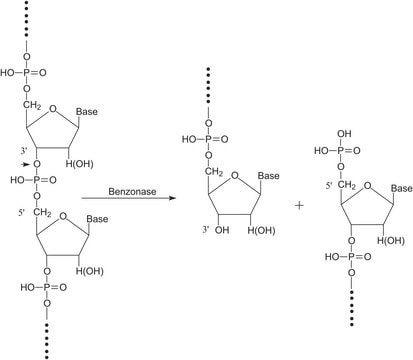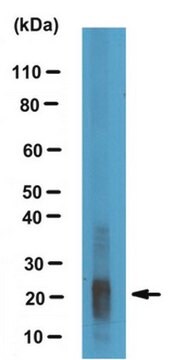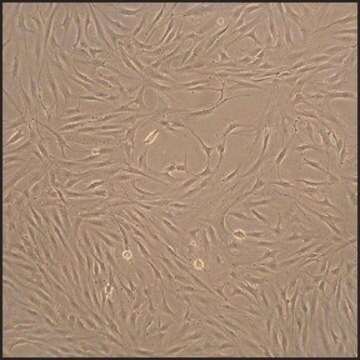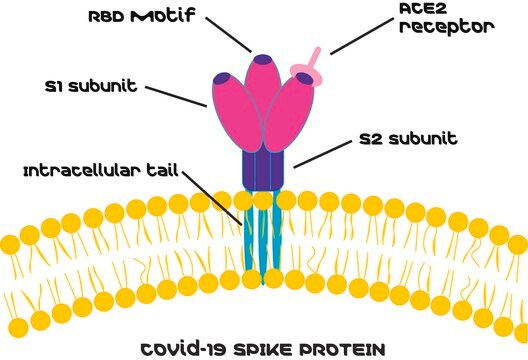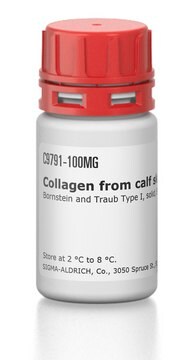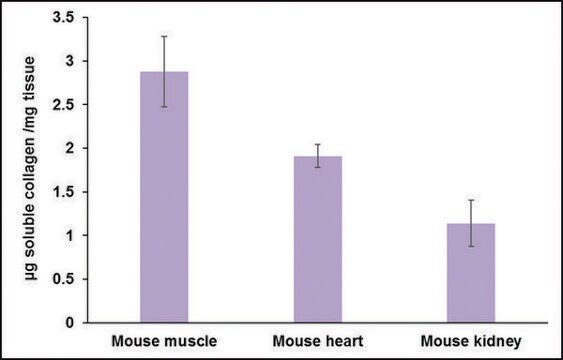Wszystkie zdjęcia(2)
Key Documents
SAE0117
Amelogenin, human
X isoform, recombinant, expressed in E. coli
Synonim(y):
AIH1, AMELX, AMG, AMGX, Amel
Zaloguj sięWyświetlanie cen organizacyjnych i kontraktowych
About This Item
Kod UNSPSC:
12352202
NACRES:
NA.26
Polecane produkty
pochodzenie biologiczne
human
rekombinowane
expressed in E. coli
Próba
≥90% (HPLC)
Postać
solid
zanieczyszczenia
≤1 EU/μg
Warunki transportu
wet ice
temp. przechowywania
−20°C
informacje o genach
human ... AMELX(265)
Opis ogólny
Research area: Neuroscience
Amelogenin, X isoform belongs to the family of closely related amelogenin proteins that participate in the amelogenesis process of teeth mineralization. Amelogenins account for more than 90% of the total protein in developing tooth enamel.
Amelogenin, X isoform belongs to the family of closely related amelogenin proteins that participate in the amelogenesis process of teeth mineralization. Amelogenins account for more than 90% of the total protein in developing tooth enamel.
Działania biochem./fizjol.
Mutations in AMELX are responsible for the development of the rare disease Amelogenesis imperfecta 1E (AI1E), which is characterized by abnormal tooth enamel development. Amelogenins act both as attachment factors and as a growth factor for mesenchymal stem cells. Amelogenin is of increasing importance as a potential therapeutic agent for variety of application including treatment hard-to-heal wounds, promoting remineralization of caries lesions, and repairing human tooth enamel.
Uwaga dotycząca przygotowania
The product can be reconstituted in water or 2% acetic acid in a concentration of 0.1-5 mg/ml. Tap vial to make sure protein is reconstituted. Aliquot reconstituted Amelogenin and store at -20 °C. Avoid repeated freeze/thaw cycles. Amelogenin may form thin clear film on some surfaces, leading to reduced concentration in solution. Exact Amelogenin concentration can be determined by absorption at 280nm. Amelogenin solution of 0.1% has A280=1.35
Inne uwagi
The product is supplied as lyophilized powder, prepared from a 0.2 μM filtered solution of Amelogenin in 2% acetic acid without any additives. The lyophilized product is essentially salt free. The biological activity of recombinant, human AMELX is measured by its ability to promote attachment of Saos-2 cells to a coated surface. The ED50 is defined as the amount of AMELX per cm2 that elicits 50% of the maximal attachment activity.
This page may contain text that has been machine translated.
Kod klasy składowania
11 - Combustible Solids
Klasa zagrożenia wodnego (WGK)
WGK 3
Temperatura zapłonu (°F)
Not applicable
Temperatura zapłonu (°C)
Not applicable
Certyfikaty analizy (CoA)
Poszukaj Certyfikaty analizy (CoA), wpisując numer partii/serii produktów. Numery serii i partii można znaleźć na etykiecie produktu po słowach „seria” lub „partia”.
Masz już ten produkt?
Dokumenty związane z niedawno zakupionymi produktami zostały zamieszczone w Bibliotece dokumentów.
Qian Ren et al.
Archives of oral biology, 100, 42-48 (2019-02-21)
Nowadays, caries prevention focuses on controlling pathogenic bacteria, inhibiting demineralization and promoting re-mineralization. The aim of this study is to design a more clinically powerful anti-caries treatment by combining amelogenin-derived peptide QP5 with antibacterial chitosan in a hydrogel (CS-QP5 hydrogel)
Marco Romanelli et al.
Clinical interventions in aging, 3(2), 263-272 (2008-08-09)
Amelogenins are extracellular matrix proteins that, under physiological conditions, self-assemble into globular aggregates up to micron-sizes. Studies with periodontal fibroblasts indicate that attachment to these structures increases the endogenous secretion of multiple growth factors and cell proliferation. Pre-clinical and clinical
Maggie Zeichner-David et al.
European journal of oral sciences, 114 Suppl 1, 244-253 (2006-05-06)
Enamel proteins, particularly amelogenin, have been associated with other functions in addition to regulating enamel biomineralization. Extracts of enamel proteins are currently being used to regenerate periodontal tissues, and new studies suggest that enamel proteins might have chondrogenic and osteogenic
Regeneration of bone and periodontal ligament induced by recombinant amelogenin after periodontitis.
Haze, A. et al.
Journal of Cellular and Molecular Medicine, 13(6), 1110-1124 (2009)
Frank Schwarz et al.
Clinical oral investigations, 8(3), 165-171 (2004-04-03)
The purpose of the present study was to investigate the effects of an enamel matrix protein derivative (EMD) on attachment, proliferation, and viability of human SaOs(2) osteoblasts on titanium implants. A total of 220 sand-blasted and acid-etched (SLA) titanium discs
Nasz zespół naukowców ma doświadczenie we wszystkich obszarach badań, w tym w naukach przyrodniczych, materiałoznawstwie, syntezie chemicznej, chromatografii, analityce i wielu innych dziedzinach.
Skontaktuj się z zespołem ds. pomocy technicznej